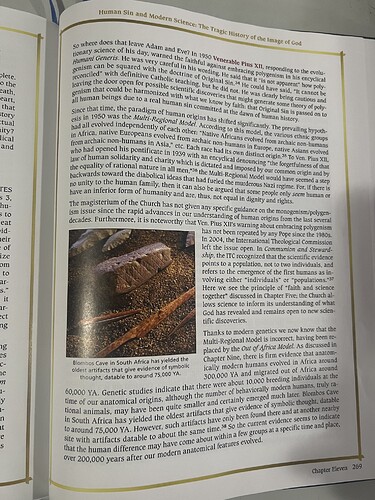That’s an overly broad generalization – most believe that it depends on the particular piece of Genesis.
I’m certain that YEC is “errant” because it is founded on imposing a modern, secular worldview on the ancient text. This is not just wrong, it is dishonest.
Poor translation – an honest translation would be:
And every living thing on the face of the land was destroyed–man and livestock, crawling creatures and birds of the air; they were blotted out from the land, and only Noah and those with him in the ark remained.
In context in Genesis, the word “land” refers to the world known to Noah. It is also limited to the flat earth-disk under the solid sky-dome.
Your citations from Matthew and Luke cannot be said to do more than reference a commonly-known story.
Hebrews 11:4-10 is a little more solid.
That’s a bit arbitrary – they don’t have any of the marks usually found with OT parables.
Another would be to say it made no difference to them: the narratives were authoritative, and that was that.
Quite so.
This has often made me stop and ponder: The opening Creation account was not written as historical, yet by the time of second-Temple Judaism it was widely regarded as historical, and today we have the data to know that it wasn’t meant as historical. But all along the way God still used it to instruct.
Wrong literary type for that – but then so are the bits of early Genesis.
Literary genre, for starters. There are other ways to tell that I didn’t really touch on in grad school so I won’t venture to try to explain any.
The period in which the New Testament writings were being penned is transitional in this regard; indeed the Gospels plus Paul’s insistence that the things known about Christ rally happened are likely part of the hinge, though their influence didn’t really have an impact till about 300.
It’s a Jewish legend that was fairly popular in second-Temple Judaism. The legend treated this “following rock” as literal; Paul turns it to a spiritual meaning that would be easily understood due to how common the legend was.
They are far more than folklore, though the Garden stories are a lot closer to it than the one that precedes those – the first one is pretty ‘high’ literature.
Or worse!
But Jesus taking it seriously and moderns taking it seriously are very different things because the foundation of what makes literature serious wildly diverges between the two cultures. To a modern, taking it seriously is linked to its content being scientifically and historically accurate; in Jesus’ time those weren’t even categories on the table.
A physical afterlife is the only one the scriptures know of.
Knor isn’t quite accurate there: Paul’s argument depends on the reality of a “first moral agent”, just not necessarily the one in the Garden story.
But the stories about Christ are different because without the Incarnation nothing else makes sense.
And pretty much all theologians!

